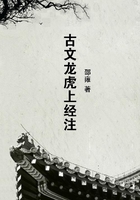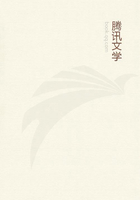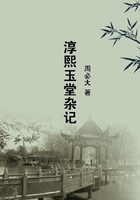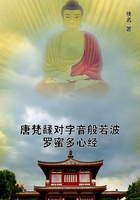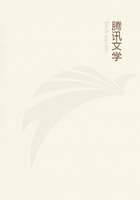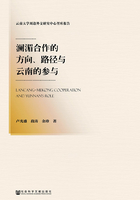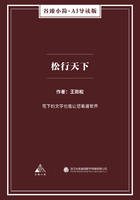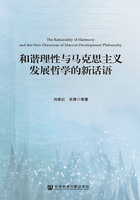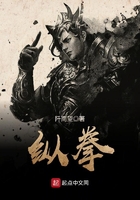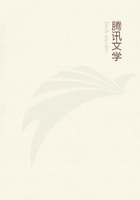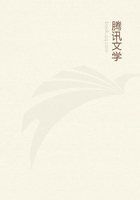The opposition between the men who HAVE and the men who ARE is immemorial. Though the gentleman, in the old- fashioned sense of the man who is well born, has usually in point of fact been predaceous and reveled in lands and goods, yet he has never identified his essence with these possessions, but rather with the personal superiorities, the courage, generosity, and pride supposed to be his birthright. To certain huckstering kinds of consideration he thanked God he was forever inaccessible, and if in life's vicissitudes he should become destitute through their lack, he was glad to think that with his sheer valor he was all the freer to work out his salvation. "Wer nur selbst was hatte," says Lessing's Tempelherr, in Nathan the Wise, "mein Gott, mein Gott, ich habe nichts!" This ideal of the well-born man without possessions was embodied in knight-errantry and templardom; and, hideously corrupted as it has always been, it still dominates sentimentally, if not practically, the military and aristocratic view of life. We glorify the soldier as the man absolutely unincumbered. Owning nothing but his bare life, and willing to toss that up at any moment when the cause commands him, he is the representative of unhampered freedom in ideal directions. The laborer who pays with his person day by day, and has no rights invested in the future, offers also much of this ideal detachment. Like the savage, he may make his bed wherever his right arm can support him, and from his simple and athletic attitude of observation, the property-owner seems buried and smothered in ignoble externalities and trammels, "wading in straw and rubbish to his knees." The claims which THINGS make are corrupters of manhood, mortgages on the soul, and a drag anchor on our progress towards the empyrean.
"Everything I meet with," writes Whitefield, "seems to carry this voice with it--'Go thou and preach the Gospel; be a pilgrim on earth; have no party or certain dwelling place.' My heart echoes back, 'Lord Jesus, help me to do or suffer thy will. When thou seest me in danger of NESTLING--in pity--in tender pity--put a THORN in my nest to prevent me from it.'"[193]
[193] R. Philip: The Life and Times of George Whitefield, London, 1842, p. 366.
The loathing of "capital" with which our laboring classes today are growing more and more infected seems largely composed of this sound sentiment of antipathy for lives based on mere having. As an anarchist poet writes:--
"Not by accumulating riches, but by giving away that which you have, "Shall you become beautiful;
"You must undo the wrappings, not case yourself in fresh ones;
"Not by multiplying clothes shall you make your body sound and healthy, but rather by discarding them . . .
"For a soldier who is going on a campaign does not seek what fresh furniture he can carry on his back, but rather what he can leave behind;
"Knowing well that every additional thing which he cannot freely use and handle is an impediment."[194]
[194] Edward Carpenter: Towards Democracy, p. 362, abridged.
In short, lives based on having are less free than lives based either on doing or on being, and in the interest of action people subject to spiritual excitement throw away possessions as so many clogs. Only those who have no private interests can follow an ideal straight away. Sloth and cowardice creep in with every dollar or guinea we have to guard. When a brother novice came to Saint Francis, saying: "Father, it would be a great consolation to me to own a psalter, but even supposing that our general should concede to me this indulgence, still I should like also to have your consent," Francis put him off with the examples of Charlemagne, Roland, and Oliver, pursuing the infidels in sweat and labor, and finally dying on the field of battle. "So care not," he said, "for owning books and knowledge, but care rather for works of goodness." And when some weeks later the novice came again to talk of his craving for the psalter, Francis said:
"After you have got your psalter you will crave a breviary; and after you have got your breviary you will sit in your stall like a grand prelate, and will say to your brother: "Hand me my breviary.". . . And thenceforward he denied all such requests, saying: A man possesses of learning only so much as comes out of him in action, and a monk is a good preacher only so far as his deeds proclaim him such, for every tree is known by its fruits."[195]
[195] Speculum Perfectionis, ed. P. Sabatier, Paris, 1898, pp.
10, 13.
But beyond this more worthily athletic attitude involved in doing and being, there is, in the desire of not having, something profounder still, something related to that fundamental mystery of religious experience, the satisfaction found in absolute surrender to the larger power. So long as any secular safeguard is retained, so long as any residual prudential guarantee is clung to, so long the surrender is incomplete, the vital crisis is not passed, fear still stands sentinel, and mistrust of the divine obtains: we hold by two anchors, looking to God, it is true, after a fashion, but also holding by our proper machinations. In certain medical experiences we have the same critical point to overcome. A drunkard, or a morphine or cocaine maniac, offers himself to be cured. He appeals to the doctor to wean him from his enemy, but he dares not face blank abstinence.
The tyrannical drug is still an anchor to windward: he hides supplies of it among his clothing; arranges secretly to have it smuggled in in case of need. Even so an incompletely regenerate man still trusts in his own expedients. His money is like the sleeping potion which the chronically wakeful patient keeps beside his bed; he throws himself on God, but IF he should need the other help, there it will be also. Every one knows cases of this incomplete and ineffective desire for reform-drunkards whom, with all their self-reproaches and resolves, one perceives to be quite unwilling seriously to contemplate NEVER being drunk again!

